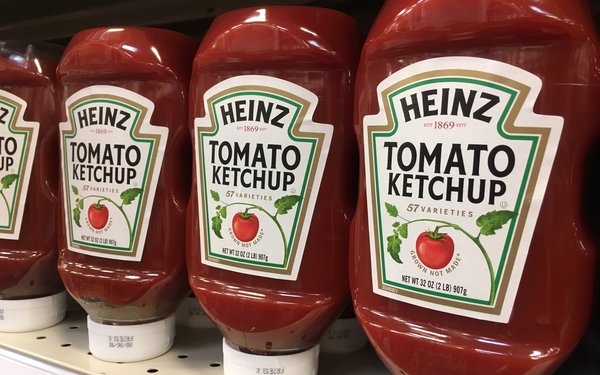
A decade after its messy merger, Kraft and Heinz
are calling it quits. The Kraft Heinz Co. says the split will help each side grow faster, but the decision also reflects the three-way squeeze hitting Big Food. Many consumers are trading down at the
grocery store. They’re also shunning processed staples. And investors are pressuring CPG execs to shake up portfolios so they can find their way back to growth.
Even Warren Buffett, the
investing mastermind who helped orchestrate the deal 10 years ago, is shaking his head. “It certainly didn’t turn out to be a brilliant idea to put them together,” he told CNBC. “But I don’t think taking them apart will fix it.”
So far,
there aren’t even names for the two new companies. The first, and ostensibly the one with the most growth potential, is tentatively named “Global Taste Elevation Co.” This
company will include three billion-dollar brands -- Heinz, Philadelphia and Kraft Mac & Cheese -- and generate roughly 75% of sales from sauces, spreads and seasonings. It’s
also got the edge in growth potential, with 20% of sales in faster-growing global markets and 20% in the away-from-home category.
advertisement
advertisement
In 2024, that portfolio produced $15.4 billion in
net sales.
The second company, for now called simply “North American Grocery Co.,” includes Oscar Mayer, Kraft Singles and Lunchables, which generated $10.4
billion in 2024 sales. The announcement politely referred to this lineup as “stable growth” products.
“Kraft Heinz’s brands are iconic and beloved, but the
complexity of our current structure makes it challenging to allocate capital effectively, prioritize initiatives and drive scale in our most promising areas,” said Miguel Patricio,
executive chair of the board for Kraft Heinz, in the announcement. “By separating into two companies, we can allocate the right level of attention and resources to unlock the potential of
each brand.”
The company’s value has been wilting for some time. By mid-2025, the company's
shares lost two-thirds of their value from the post-merger peak, NPR writes.
The 2015 megamerger was
spearheaded by Buffett's Berkshire Hathaway and 3G, a Brazilian private equity firm best known for the cost-cutting tactics it had employed at Burger King and Anheuser-Busch.
But those
efforts failed to spark growth as sales continued to decline. Widespread layoffs in 2019 and a $15 billion writeoff against the value of Oscar Meyer and Kraft also hurt. The Wall Street Journal, which began reporting rumors of
the breakup as early as July, notes that the division comes “as corporate breakups are coming into vogue in the food and beverage industry.” Besides the Kellogg split in 2023, it notes
that Keurig Dr. Pepper is breaking up the 2018 deal that meshed a coffee maker and beverage company.
And over the weekend, the WSJ reported that activist investor Elliott Investment
Management revealed a $4 billion stake in PepsiCo and has already suggested ways that the company could shake up its portfolio, which includes beverages, Frito-Lay and Quaker Oats. Sales growth in
PepsiCo’s food division has slowed every quarter since 2022, the WSJ
notes.